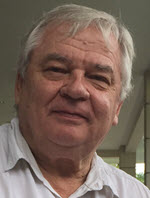Five Problem Solving Approaches and Systems
“If liberty means anything at all, it means the right to tell people what they do not want to hear.” — George Orwell
First things First… definitions
PSA & PSS
PSA = Problem Solving Approach is a recognizable pattern of problem solving which has not been examined by the user and often occurs unconsciously, it may be successful without the person being aware of it and it’s VOLTAGE: Dimensions of Vertical, Oblique, Lateral, and Time Complexity.
PSS = Problem Solving System is both recognizable and is regulated by the user unconsciously, often consciously. It is successful and the user is becoming aware of where it is not successful and maybe examining it, experimenting with it, changing it, or adapting aspects of it through a transition to a different VOLTAGE.
Five Key PSS that matter
Literal, Figurative, Professional, Systematic, and Metasystemic.
Is that all there is?
Well, it’s not really that simple but to get the most for the least we don’t have to be perfect… close enough works, in helping INQUIRY.
If our Intuition is wrong 50% of the time then anything that gets us to Pareto (80-20) is helpful?
5 out of 20 ain’t bad?
There may be as many as 20 different PSS but I’ve found if you can recognize these five… it’s robust enough generally to guide INQUIRY in the developed world.
Don’t assume, Inquire.
Just a quick note about the difference between PSA (Approach) and PSS (System).
PSA is usually a one-off type of event versus a system or model of PSS which can be duplicated, nuanced, recalled, explained, and taught.
Necessary… NOT sufficient!
People using Helping Inquiry must be aware of the need to recognize when a PSA is not necessarily a PSS.*
[In the practice of adult developmental assessment, it’s customary to note the most complex performance as the current level while the density and frequency of the PSA is insufficient to replicate into a problem-solving system. Our system of Dynamic Inquiry had evolved over time to identify where density and frequency of the PSS (PSA) lacked the capability to solve problems consistently at the most complex level of performance, albeit necessary, but insufficient.]
All of these systems tend — for a variety of reasons — to be able to generate a PSA that is both more or less complex (depending on emerging task complexity, personality dynamics, and the context of the problem as it relates to CCR (Culture, Conditions, and Requirements).
However, an approach does not a system make, beware. ![]()
Simple, but no simpler…?
Maybe… a little disclaimer. ![]()
The sense of offering you the idea that there are discrete problem-solving Approaches (PSAs) and Systems (PSSs) brings with it the tension of the task and its hierarchical complexity which is how the systems can be observed and noticed.
Problems choose us?
People can, will and do take on tasks that are “usually” fit to their problem solving system—another way of recognizing the complexity of the PSA or PSS.
From less to more complex. About 40% of the world’s population tends not to make it solidly into the tier where the “five PSS” are systems and only about 1% seem complex enough for behavioral density and frequency mostly in the PSS metasystem 5.
The MOST difficult construct in this approach to grok is the nature of the network effects rather than a linearity of a bell curve; not alone the “heads and tails” of power laws.
Personality Dynamics are networked and tend to emerge in density and frequency of behavior from need or values combinatorial bounding the system to tensions of what works or feels “right” at the time.
Every approach and/or system has each of the other systems?
As such, in a network effect all 5 of the referenced PSAs tend to mix it up where needs and values emerge as “RightACTION” bounded by underlying problems in personality dynamics and one’s subjectivity to those dynamics.
It’s a network… A HETERARCHY!*
5 PSAs or when behaviorally established (dense & frequent) PSSs:
- Literal
- Figurative
- Professional
- Systematic
- MetaSystematic
It’s in the book…
Unfortunately, a further explanation requires a lot of words, not possible in a blog post.
However, an appendix in my forthcoming, unnamed book on inquiry (October 2024) details what I can tell you about these recognizable approaches and systems for advanced inquiry.
Get on the list @leadu.com/news
Mike R Jay & Gary Gile
Founders @ The NEW LeadU
* https://en.m.wikipedia.org/wiki/Heterarchy
Join us,
Our team at Living & Loving Inquiry
Subscribe @ leadu.com/news
PS: For clarification
- If you just want notice of the blog posts subscribe @ leadu.blog
- If you want the blog content by email, our weekly newsletter, and breaking news, subscribe @ leadu.com/news.
- Disclaimer

Notice: To pre-order a copy of Mike’s latest book mentioned in some of his posts in e-book format for $9.97 (available by October 3rd and/or $39.98 hardcover (preorder) with autograph
If you have any comments, questions, suggestions, or need some additional help, please visit https://www.leadu.com/comment/ to submit them. Someone will get back to you within 48 hours.
We hope you pick up valuable insights, ideas, and
tools during this process, which you can use for your own development as
well as your work and leadership with others.
You, Me, and We @LeadU
Mike R. Jay is a developmentalist utilizing consulting, coaching, mentoring, and trusted advice emergent from dynamic inquiry as a means to cue, scaffold, support, lift, and protect; offering inspiration to aspiring leaders who are interested in humaning where being, doing, having, becoming, contributing, protecting, and letting go help people have generative lives.


© Generati
